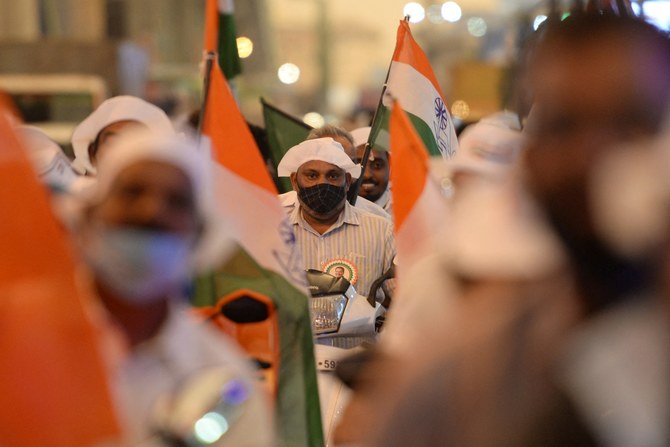NEW DELHI: Tens of thousands of Keralites working in Gulf countries are flying home to cast their ballots as the southern Indian state opens for voting on Friday in the world’s biggest general election.
India’s seven-phase polls started on April 19 and take place over the next six weeks, with more than 968 million people registered to vote.
Some states are completing the process in a day, and others have it spread out in several phases. Kerala is joining other 12 states, which according to the schedule go to the polls on April 26.
Indian nationals living overseas have been allowed to vote since 2011 and have to register with both the Election Commission of India and Indian embassies in their countries of residence. Their names will then appear on the voters’ list, but to cast their ballots, they still need to be physically present in their constituencies.
India has one of the world’s largest diasporas, especially in GCC countries, where at least 9 million Indian expats live and work. The southwestern coastal state of Kerala is the single main place of their origin. Some 3.5 million Keralites reside in Saudi Arabia, Oman, Kuwait, Qatar, Bahrain and the UAE.
“I think about 30,000 people have come from Saudi Arabia alone to vote. Not all of them have come on ‘vote viman’ (vote flights). Some have also come by regular flights,” said Iqbal Cheri, a marketing professional working in Dammam, who reached Kerala on Thursday.
Cheri referred to the flights that have been bringing citizens home to participate in Friday’s polls.
“They bring voters only and they are mostly chartered flights,” he said. “We have come here to vote and save our democracy and secularism. It’s an important election and we all need to vote to save the nation.”
His compatriot, Shareef Chola Paramdil, who works as a marketing head of a hospital in Dammam, said these election flights have been bringing Saudi Arabia-based Kerala voters home for the past few days.
“Last week, also three chartered flights came from Saudi Arabia,” he said.
“People who come on the chartered flights pay less compared to the regular flights, as group booking brings down the fare. Besides, these people don’t get more than a few days of leave. So, they come and cast their votes and leave the next day.”
There are 543 contested seats in the lower house of parliament. The party or coalition that wins at least 272 is going to form the government. The state of Kerala will contribute 20.
For Paramdil, the election is particularly important as a Muslim because incumbent Prime Minister Narendra Modi and his ruling Bharatiya Janata Party have been accused by the opposition and minority groups of marshaling majoritarian Hindu sentiment.
Critics say that India’s tradition of diversity and secularism has been under attack since Modi took power a decade ago and that his party has been fostering religious intolerance and discrimination.
“We want a government that does not discriminate in the name of religion, and we have been troubled by the politics of division that the government in Delhi has been practicing ever since it came to power in 2014,” Paramdil said.
Both Keralite Muslims and Hindus — like Gokul Padnabhan, a Kuwait-based professional in the oil and gas industry — see the election as an important exercise of their democratic rights.
“It’s very important to be here this time. That’s why I came for the vote,” Padnabhan said. “The vote will help us find the right person to rule us for the next five years.”
One of the organizations helping expat voters charter flights in Gulf countries is the Kerala Muslim Cultural Centre, an overseas wing of the Indian Union Muslim League.
“I feel around 100,000 people have come from the Gulf region to vote in this election,” said Ahamed Saju, head of the IUML’s student federation.
“Why they came is because this is a very crucial election this time ... Each and every vote is important. So, they thought that this time to protect our democracy, protect our constitution, protect our values and protect our secular credentials and the secular fabric of the country.”





















